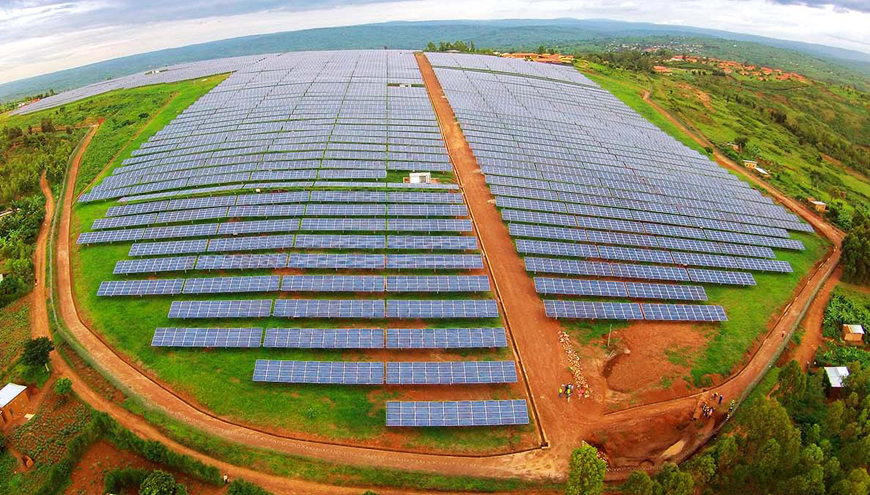
Rwanda
Gigawatt Solar
Reducing Rwanda’s carbon emissions by 8,000 tonnes a year. Clean power is key to improving living standards for fast-growing population.
$2.37m
Total investment
$10.6m
Value of PIDG investment
60,994
Number of people benefitting
Background
Rwanda relies on imported fossil fuels to power its homes and businesses. Fuel imports have a high environmental and fiscal cost and are vulnerable to price fluctuations. The Government of Rwanda has identified the development of indigenous fuel sources, specifically renewables, as key to its ambitious plans for the country’s economic growth. The country’s installed power capacity is limited, and just 18% of Rwandans have access to modern electricity. Rwanda’s population is growing fast and access to affordable, clean power will be key to improving living standards and developing the country’s economic potential in the future.
Project
PIDG company EAIF supported the development of a solar photovoltaic (PV) facility in Rwanda’s Eastern Province. EAIF provided a US$10.6m long-term loan to finance Gigawatt Solar’s construction, arranging US$23.7m in finance from the private sector and other DFIs. The project achieved financial close in just 3 months, much faster than the typical 8-12 months usually required for projects of this type. The first utility-scale private solar PV farm in east Africa, Gigawatt Solar delivers 8.5MWp of clean power to Rwanda’s national grid. Developer Gigawatt Solar Cooperatif was able to swiftly construct the solar farm on land leased from social enterprise, Agahozo-Shalom Youth Village (ASYV).
Impact
Gigawatt Solar has added 6% to Rwanda’s installed capacity, giving over 60,000 people new and improved access to clean power. The project reduces Rwanda’s carbon emissions by 8,000 tonnes per annum. 200 construction jobs were created by the project and a further 15 permanent posts. The structure of the project’s loan finance – a loan tenor of 17 years – has enabled tariffs to remain competitive, at US$0.25 per KWh they are substantially lower than those for heavy fuel oil and diesel power. The regulatory framework established for the project has considerable potential for replication elsewhere in sub-Saharan Africa.
…This initiative to produce 8.5MWp is a good addition towards closing the current energy gap.

